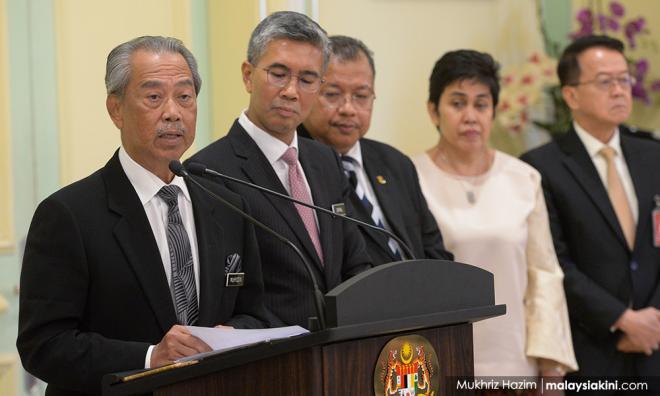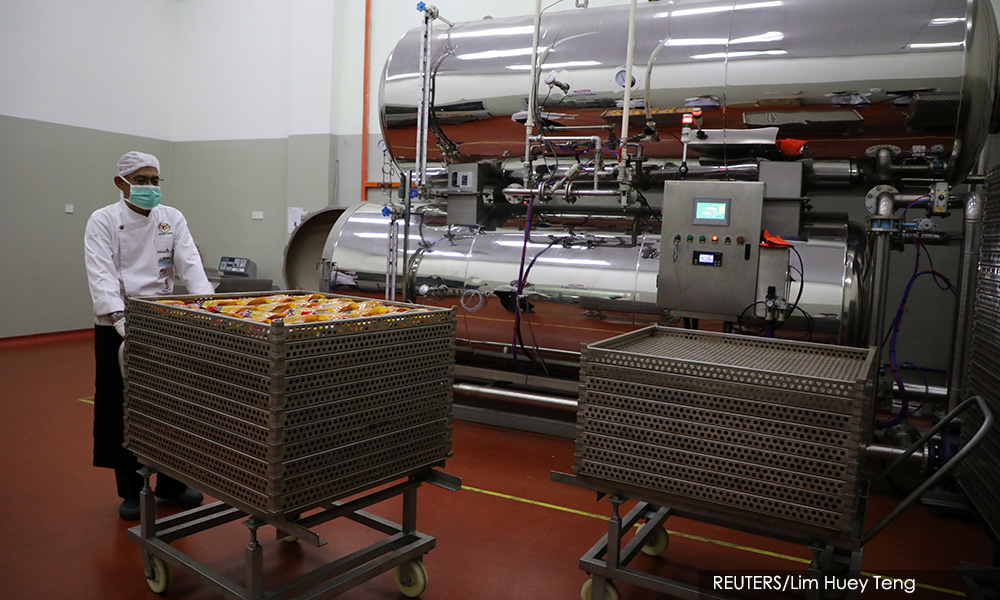
Our economy is collapsing and only we know it. Air flights halted, travel agencies shut, restaurants closed. In the weeks to come, we will hear about many businesses having zero revenue. Soon, we will know someone around us who has lost a job.
These stories will take a while for the government to register as statistics, and we need two consecutive quarters of economic decline to call this a recession.
But make no mistake, we are standing at the cliff of one of the worst economic crises of our time.
Destroy economy to save our health
Unlike other crisis, we need to destroy our economy to save our health. The only way to stop the spread of the coronavirus pandemic is to stay at home. All businesses must close, you cannot travel or go outside, and you should only spend on necessities that keep you safe and healthy.
We are left with an unfortunate dilemma: Do we save our health or do we save our economy?
The only way out of this bind is for the government to spend, at a massive and radical scale. And this is the bare minimum to keep our economy from going further south.
Prime Minister Muhyiddin Yassin’s failure to appreciate the scale and rate of the economic collapse explains why the stimulus package is insufficient. While direct cash transfers to all groups are commendable, they simply do not go far enough.
It assumes that the pandemic and recession is short-lived; it assumes that the measures could be short-term; it assumes that we could solve the structural challenges of our businesses being short-sighted.
Millions of jobs will be lost
In every impending economic crisis, the urgent priority is to make sure people do not lose their jobs. If people lose their jobs, the country’s output and aggregate demand will drastically decline because income has evaporated. If a vast number of people are out of jobs for too long, our earning potential and productive capacity will also be permanently scarred.

A country that has mass unemployment will also have high physical and mental health problems, besides a high crime rate and low subjective happiness. These problems are worst for young people, who were already struggling to find jobs before the Covid-19 crisis.
In the next few months, either 2.4 million or four million people will lose their jobs.
Muhyiddin’s stimulus package does not help. The grand “RM 250 billion” only included an RM600 wage subsidy for employees earning RM4,000 and below, for companies that have experienced a 50 percent decline in revenue since January 2020.
This move is futile.
When your revenue has dropped to half or near zero, and if the only way to stay afloat is to take a loan, then it makes more financial sense to close down. RM600 will make no difference.
SMEs are the worst casualties of this recession because cash flow is the biggest problem. If the SME industry decides to slash workers at a large scale, this will affect up to two-thirds of the workforce in Malaysia.
We are already hearing from them that this "failed" plan does little to help them. So, we can anticipate a mass retrenchment around the country – starting from the most affected industries: tourism, hospitality, transportation, food and beverages and retail.
Other countries understand this.
Subsiding almost all of wages
That is why Denmark and Sweden are paying up to 90 percent of wages. Singapore and Canada both foresaw the severity of the problem and urgently increased wage subsidy to 75 percent of total pay. For the first time in history, the United Kingdom is also directly paying the wages of employees – up to 80 percent.
The basic concept is simple. When the economy halts, there is no more cash. When there is no more cash, companies have to fire their staff. Loans may help some, but they will not help the most. The best solution is for the government to pay your wages so that your boss does not fire you.

It is better to keep workers at their jobs so that we don’t have to spend time to rehire and retrain them when the economy is healthy again. We need to recover – we can’t afford to restart.
RM600 is not only meagre (approximately 15 to 25 percent), but they are also short – lasting for only three months. We need wage subsidies that are significantly higher and significantly longer to account for the pandemic, the recession and also the additional period companies require to undergo structural changes to make money again.
The foremost is digitalisation – selling things online. Since the people are told to stay at home – and they will reduce going out even after the order is lifted – the only place to sell is online. And most companies need to undergo this basic transformation to get back on their feet.
Jobs are about the people
Not caring about job losses means not caring about the people.
If I had lost my job that pays me RM3,000 a month, giving me a one-off RM1,600 aid that lasts only for two months will not save me. Once retrenched, I am likely to be jobless for the next six to 12 months because no one will be hiring. In aggregate I have less money to spend, I also lost a job.
Mass unemployment begets low aggregate demand, and low aggregate demand begets mass unemployment.
Without a massive wage-subsidy system to keep most people employed, a stimulus package does not protect the people.
My hope is the same as yours. I hope we find a vaccine soon, I hope our frontliners stay safe and healthy. I hope we have enough hospital beds and ventilators for those who are infected. I hope more and more people recover from the plague.
And when it is all over, we could go out again. We could stroll at parks, dine at restaurants, and walk around shopping malls with our friends and family, and find joy in the little moments. And we could go back to work the next day knowing that our hard work goes to rebuilding our country from collapse.
I hope, by then, we could still do that.
JAMES CHAI is a legal consultant and researcher working for Invoke, among others. You may reach him at jameschai.mpuk@gmail.com. - Mkini



No comments:
Post a Comment
Note: Only a member of this blog may post a comment.